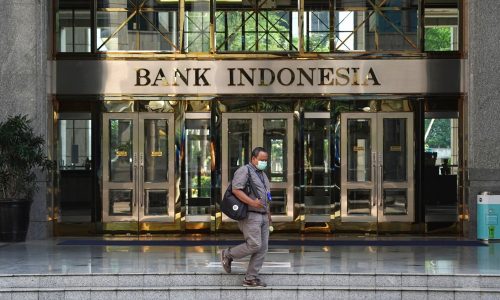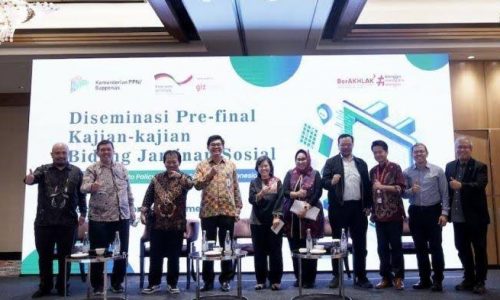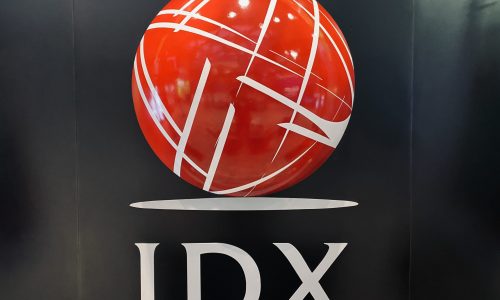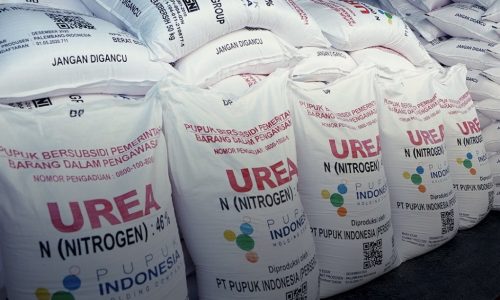Over the years, anti-independence movements in Papua have attempted to unite a movement divided by strategy, personal interests and competition among various factions, However, a recent conflict showed that it needed more efforts to do so.
An internal conflict within the United Liberation Movement for West Papua (ULMWP) illustrates how difficult it is to unite all groups fighting for freedom from Indonesia under one umbrella organization.
Forming a united front
The ULMWP was established on December 6, 2014, as a means to coordinate the activities of three major liberation organizations in the country: the National Republic of West Papua (NRFPB), the West Papua National Coalition for Liberation (WPNCL) and the National Parliament of West Papua (NPWP).
Marcus Haluk, Executive Director of ULMWP, explained that the organization’s establishment was motivated by the need to unite the Melanesian Spearhead Group (MSG) after WPNCL’s application for membership in 2013 was postponed.
As part of the MSG mission, a delegation of foreign ministry officials was dispatched to Papua in January 2014. In an appeal made during the MSG delegation’s meeting with Papuan leaders, the panel called on the Papuan people to form a united front. This will enable them to become members of the MSG. Following the meeting, the ULMWP was established, and the pro-independence groups in Papua applied to join the MSG. In July 2015, the ULMWP was admitted as an observer to the MSG.
ULMWP is a product of the older Papua Peace Network (JDP), according to the Institute for Policy Analysis of Conflict (IPAC) report. Since 2009, a network of civil society organizations has been working in Indonesia to facilitate a dialogue regarding the possibility of a peaceful Papua. Among the group were activists from Jakarta and other parts of Indonesia and Papuans.
Despite the assumption that any conference would be conducted within a framework of autonomy and recognition of Indonesian sovereignty, the discussion was initiated without regard to anyone’s views on the issue of independence.
The July 2011 Jayapura Peace Conference marked a pivotal moment in the development of the JDP. The agreement set out a dialogue schedule between Jakarta and Papua to resolve grievances and end violence.
In the conference’s closing remarks, JDP announced the names of five individuals who would serve as its “negotiators” in case of a dialogue. There are five Papuans who are fighting for independence in the diaspora: Benny Wenda, Octovianus Mote (a former journalist who sought asylum in the US in 2000), Leonie Tanggahma (daughter of an OPM representative who lived in Senegal during the 1970s and is currently in the Netherlands), Jacob Rumbiak from the WPNA and John Ondawame.
ULMWP’s secretariat comprised of these five negotiators. Mote is the first chairman of the committee.
Internal conflicts
Wenda was elected Chairman of the ULMWP on December 1, 2017, following a restructuring of the organization. Even though the ULMWP and Wenda tried to bring other groups together, they were unsuccessful in gaining recognition.
The ULMWP announced on July 1, 2019, that earlier in May, the West Papuan military wings had unified under one command to form the West Papuan Army, which included the West Papuan Revolutionary Army (TWRP), the West Papuan National Army (TNPB) and the West Papuan National Liberation Army (TPNPB). The ULMWP’s political leadership will supervise the military command.
According to Sebby Sambom of the West Papuan National Liberation Army (TPNPB), the claim was untrue and called for an apology and retraction. Following the 2017 Vanuatu summit, the ULMWP withdrew from the organization. As Sambom told Indonesia Business Post, “TPN-PB is not correlated with ULMWP.”
Along with conflicting claims, the Papua pro-independence groups also displayed different interests and strategies against the Indonesian occupation.
ULMWP announced on December 1, 2020, that it would form a provisional government with a temporary constitution for the Republic of West Papua. Wenda will serve as interim president. Legislative and judicial members have also been appointed. The provisional government seeks international recognition to establish its political authority over West Papua.
Sambom said the TPNPB had no interest in reuniting Papua independence groups to achieve diplomatic unity and a successful international campaign. In his view, Wenda desires to establish a transitional government and appoint himself as president.
According to Sambom, a military wing of the pro-independence group, Indonesia’s occupation is the only way for the island to achieve independence. “Because Indonesia is stubborn and deceitful in its treatment of Papua, diplomacy will not bring independence,” he continued.
A source within the movement stated that the armed wing of the pro-independence movement regarded itself as the oldest and most consistent group committed to liberation. Nick Messet and other former leaders of the Free Papua Movement (OPM) believe that civil and political groups are betraying the struggle for independence and collaborating with Jakarta.
Other organizations and individuals have also rejected ULMWP. Mote, formerly the leader of the ULMWP, decided to leave the group and established the OPM. A measure by Wenda to restructure the ULMWP from a coordinating forum of all pro-independence groups into a semi-state structure with the appointment of Wenda as president was objected to by Mote.
Different perspectives
Mote believes that the time is not ripe for Papua to have a provisional government and a president. The primary objective at this point is to achieve independence. Upon gaining independence, an election may result in the formation of a government and the appointment of a president.
Haluk acknowledged that there were dynamics within the organization. Nonetheless, he argued that the different perspectives within the pro-independence movements are not fundamental.
“The problem has been that in the past couple of years, we have not communicated or coordinated. The cause of this damage was the COVID-19 pandemic,” he said, adding that during the ULMWP meeting, all factions, including TPNPB, OPM, civil and political groups from Papua and overseas, displayed their presents.
Wenda insists on his leadership claim over the entire pro-independence movement in West Papua. Wenda told the Post that the provisional administration was responsible for all organizations fighting for the independence of West Papua because the government has been officially announced. According to him, they have been claimed by the government.
The provisional administration will act as the governing body of the movement, whereas tactical organizations will implement the self-determination plan of the interim government.









